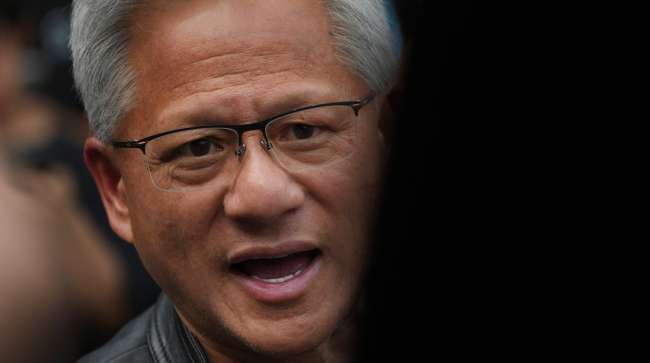Overview of the Meeting
On August 6, a notable meeting took place between U.S. President Donald Trump and Jensen Huang, the CEO of Nvidia Corp., at the White House, centered around the impending tariffs on semiconductor imports. As the demand for AI chips soars, the implications of this discussion bring significant focus onto the logistics of semiconductor transportation and manufacturing.
Concerns & Appeals for Exemption
Huang’s visit was strategically timed, taking place just before another tech leader, Apple CEO Tim Cook, was scheduled to announce a substantial domestic manufacturing investment of $100 billion. Both Huang and Cook have actively campaigned for exemptions regarding their products from the forthcoming import taxes. According to Trump, he intends to introduce new tariffs focused on the semiconductor sector, emphasizing the desire for increased domestic production of these vital components.
The Impact of Tariffs
These proposed tariffs could significantly influence Nvidia, whose semiconductor manufacturing is primarily based in Taiwan. Given that these chips play a crucial role in the developing field of artificial intelligence technology, the ramifications stretch far beyond company revenues; they pose potential challenges for logistics and supply chain management within the tech sector.
Details from the Meeting
The details surrounding this meeting, recounted by an anonymous administration official, highlight concerns over tariffs and their effects on the tech industry. During an interview, Trump noted the announcement regarding semiconductors and chips, elaborating that they aim to motivate production within the United States.
Prior Meetings and Developments
This interaction is not the first between Huang and Trump. Just a month prior, they had met at the White House, where Huang also attended an AI summit alongside senior officials. Shortly after this previous engagement, Nvidia had managed to secure permission to resume selling its H20 AI chips to China, which had been frozen earlier due to rising trade tensions. This back-and-forth illustrates the complex and ever-changing landscape of international trade and logistics.
The Broader Implications for Logistics
The introduction of tariffs on semiconductors raises several logistical considerations for manufacturers, distributors, and transport services. Understanding these impacts is crucial for anyone involved in the logistics sector, as changes in tariffs can lead to shifts in shipping routes, costs, and the overall supply chain management. An interconnected global economy means that logistics must adapt rapidly to these changes.
Impact on the Logistics Sector
- Increased Shipping Costs: Tariffs can lead to higher prices for imported goods, which in turn increases shipping costs.
- Supply Chain Disruptions: Tariffs may necessitate adjustments in supply chains, impacting how and where products are sourced and delivered.
- Pressure on Domestic Production: Focus on boosting domestic production could reshape logistics strategies, making local shipments more prevalent.
Conclusion about Logistics Adaptation
As these changes unfold, companies in the logistics sector may need to sharpen their pencils and rethink their strategies. Staying ahead of trends in tariffs and international logistics is crucial for maintaining a competitive edge.
Consideration for the Future
Although the ramifications of these developments can ripple through the logistics framework, it’s important to note that even expert analysis cannot fully capture the nuances of personal experience in these situations. When navigating the complexities of global cargo transportation, businesses can benefit from the insights available at GetTransport.com. This platform offers reliable and cost-effective cargo transportation solutions, accommodating office moves, home relocations, cargo deliveries, and bulky items.
The key takeaway here is that while the future of logistics in light of rising tariffs remains uncertain, platforms like GetTransport.com stand as valuable resources. They simplify transportation needs while maintaining transparency and cost-effectiveness. Whether you’re shipping AI components across the ocean or relocating your office down the street, GetTransport.com offers versatile solutions that cater to a range of logistical challenges. Book your Ride today and explore their extensive service offerings!
In summary, the meeting between Huang and Trump has set the stage for significant changes in the semiconductor industry, with implications that reach into logistics and transport. As these regulations evolve, being informed and agile will enable logistics providers and businesses alike to navigate through the uncertainty, ensuring a smooth transition in the ever-changing landscape of global trade.

